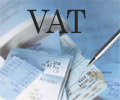
Finance Minister P Chidambaram has announced to reduce the Central Value Added Tax (CENVAT) imposed on all goods and products by scraping 2% from current 16% to 14% to boost the consumption of essential commodities that will later directly put a positive impact on Indian industries.
Estimating the value of manufacturing sector, Finance Minister has declared to scrap this tax while he has not touched the corporate tax. “Having carefully studied current trends of production and consumption, I believe there is a need to give a stimulus to the manufacturing sector", said Chidambaram.
This tax reduction might put slightly but effectively impact in the commodities market and the general public can save some money when they will buy any goods added with CENVAT. Water purification devices, veneers and flush doors, sterile dressing pads, specified packaging material, and breakfast cereals will the most effective products from CENVAT.
According to Finance department, the Goods and Service Tax is scheduled to be effective from April 2010 and vendors and businesspersons were expecting to bear another sort of tax because ministry is eyeing to hike the service tax up to 16%, but FM has not announced any sort of new tax assuming the next election, as the market experts believe.
Despite this deduction, FM is still expecting to collect more revenue as against the current fiscal because new taxpayers will include in the range of excise duty and service tax circle. Ministry has set the target to collect Rs 1,37,874 crore, a 7.76 per cent higher rather than current fixed target of Rs. 1,27,947 crore.
CENVAT scheme had been imposed in 2002 in the replacement of MODVAT scheme. According to CENVAT credit rules, 2002, “A manufacturer or producer of final product is allowed to take CENVAT credit of duties specified in the CENVAT credit Rule, 2002. While the detail definition of Raw Materials, Capital Goods, Exempted Goods and Final products has been specified in Rule 2 of CENVAT Credit Rules, 2002.
|
|
Read More: Chidambaram


Comments: